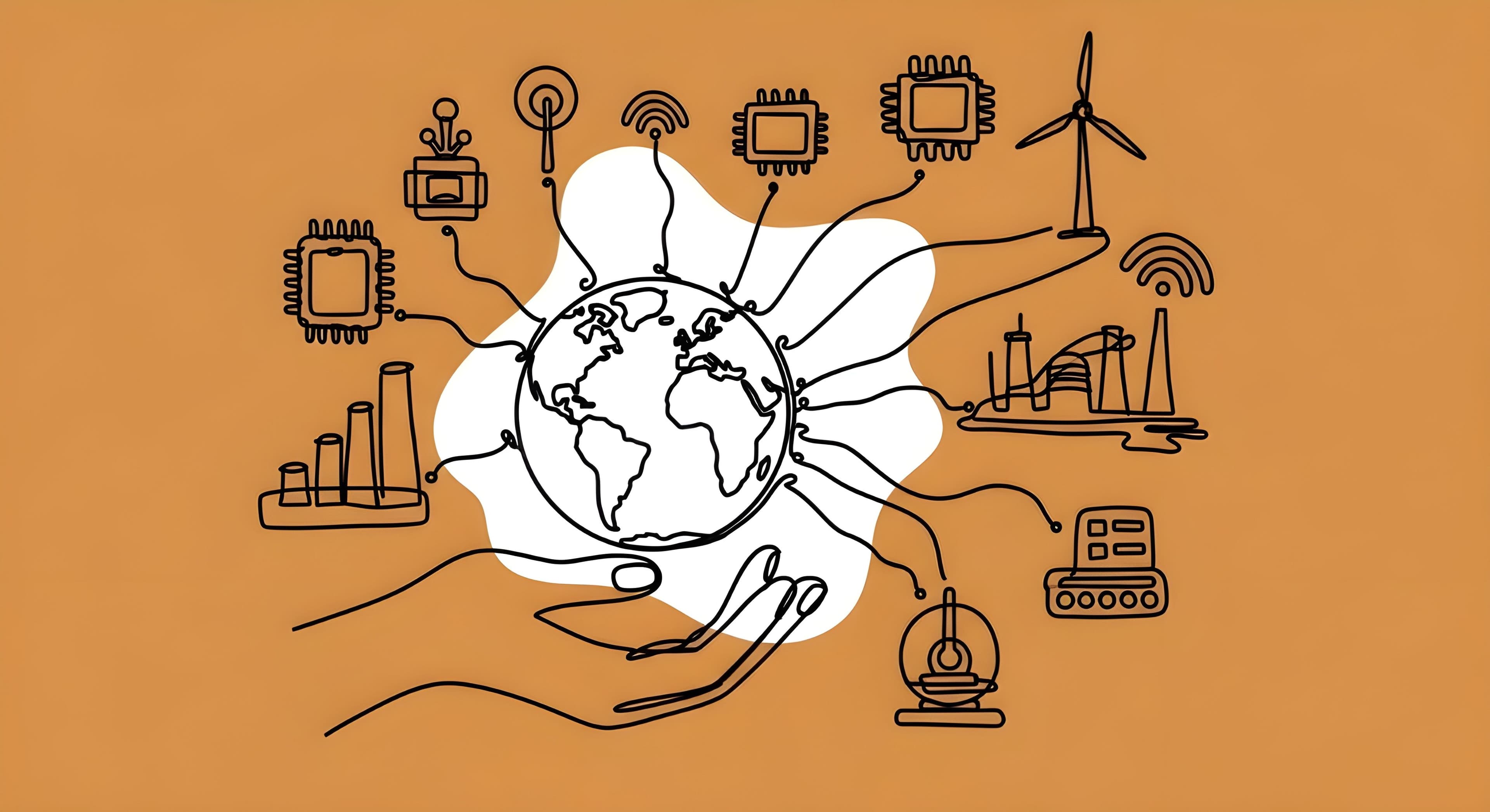
Rare Earth Controls Go Global, Enforcement Heat Rises: What Trade Teams Need Now
NEWSLETTER | Trade Insight AI
China Globalizes Rare Earth Controls as U.S. Threatens 100% Tariffs
STR Trade Report • October 15, 2025
China’s Oct. 9 MOFCOM notice extends rare earth export controls worldwide via an FDPR-style reach, a 0.1% de minimis threshold, technology-based controls on foreign production, and a new 50% affiliate rule; origin-based controls are already in force, with the others effective Dec. 1 and compliance letters required. Meanwhile, the U.S. has threatened a 100% tariff on Chinese imports effective Nov. 1, atop existing reciprocal, fentanyl-related, and Section 301 duties. Companies should map BOMs to the 0.1% threshold, trace use of Chinese know-how, review ownership exposure to listed entities, and prepare MOFCOM licensing and tariff contingency plans.
Enforcement & Compliance Crackdown
DOJ Indicts Forklift Firms as Revitalized Trade Fraud Task Force Acts
STR Trade Report •October 16, 2025
A federal grand jury indicted two companies, two current executives, and one former executive for allegedly disguising Chinese-origin forklifts as U.S.-made to sell to federal agencies and using fake invoices to undervalue imports, defrauding more than $1 million in tariffs, duties, and fees. The case aligns with DOJ’s revitalized interagency Trade Fraud Task Force, signaling more aggressive criminal enforcement against duty evasion, origin misrepresentation, and related schemes. Potential penalties include up to 20 years per wire-fraud count and significant corporate fines, elevating compliance risks around valuation and government procurement sales.
DEA Temporarily Schedules Seven Nitazenes, Restricting Imports and Exports
STR Trade Report •October 17, 2025
DEA issued a temporary order placing seven benzimidazole (nitazene) opioids in Schedule I, effective Oct. 15, 2025 through Oct. 15, 2027. Schedule I status imposes strict import/export prohibitions and DEA authorization requirements, with full administrative, civil, and criminal penalties for noncompliance across importers, exporters, manufacturers, distributors, labs, and researchers. Trade teams should immediately screen product catalogs and shipments for these substances to avoid enforcement exposure.
Importers on Notice as CBP Recoveries and Penalties Surge
STR Trade Report •October 16, 2025
CBP reports a steep enforcement ramp-up: FY2025 (first 11 months) vs. FY2024 shows collections up 63.8% from importer audits, 476.5% from entry summary reviews, and 44.5% from trade penalties and liquidated damages. The push spans priority areas such as AD/CVD, IPR, import safety, textiles, and revenue, plus newer mandates on forced labor and sanctions related to Russia and Belarus amid multi-year increases in penalties. Importers should tighten reasonable care by mapping risk by product and origin, strengthening internal controls and documentation, and conducting proactive compliance reviews to avoid costly assessments.
Tariff & Classification Strategy
Deadline Looms to Preserve Tariff Refund Claims Amid IEEPA Lawsuits
STR Trade Report •October 17, 2025
Multiple lawsuits challenge the legality of Trump-era tariffs imposed under IEEPA, and importers may only recover duties if they preserve their rights before entries finalize. Review ACE data, track and extend liquidation where possible (up to three years), and file protests within 180 days of liquidation—requesting stays pending litigation and preparing to go to the Court of International Trade if denied. Prioritize early‑2025 entries and document claims thoroughly, including FTZ privileged foreign status cases, to avoid losing refund eligibility.
WCO HSC Advances HS 2028 Correlations; 40 Classification Decisions Issued
STR Trade Report •October 16, 2025
At its Sept. 17–26 session, the WCO Harmonized System Committee examined 71 agenda items, issued 40 classification decisions, created 21 new classification opinions (deleting two), and adopted two amendments to the HS 2022 Explanatory Notes. The committee also began developing correlation tables between HS 2028 and HS 2022 and adopted an improved format to enhance clarity and usability. These steps provide early visibility into HS 2028 implementation and signal areas where traders may need to update classifications, systems, and duty planning.
Export Controls & Entity Risk
BIS Adds 29 Entities to Entity List; Licenses Presumed Denied
STR Trade Report •October 15, 2025
BIS issued a final rule effective Oct. 8 adding 29 parties to the Entity List—19 in China, nine in Türkiye, and one in the UAE. All items subject to the EAR now require licenses for these entities, with applications reviewed under a presumption of denial; the 50 percent ownership rule extends restrictions to majority-owned affiliates. Shipments already en route on Oct. 8 may proceed under prior eligibility if completed by Nov. 7.
Customs Operations & Trusted Trader
COAC presses CBP to modernize Centers amid surging enforcement demands
STR Trade Report •October 17, 2025
CBP’s Commercial Customs Operations Advisory Committee urged the agency to update its Centers of Excellence and Expertise to reflect a decade of new pressures, including 201/232/301 tariffs, EAPA, UFLPA, rising AD/CVD cases, and the boom in low-value shipments. Ahead of an anticipated restructuring, COAC recommends stronger Center-led trade communities and stakeholder connectivity, rebalanced workloads and staffing, regular resource reviews, reassessment of Center number and commodity alignment, and evaluation of organizational and funding structures. If adopted, changes could reshape importer account management, processing times, and coordination with partner government agencies.
Tariff Uncertainty, UPS Disposal Over Customs Gaps, Mexico Eyes Hikes
STR Trade Report •October 16, 2025
Potential court invalidation of Trump’s tariffs could trigger a slow, manual refund process, while UPS says it is disposing of U.S.-bound parcels that lack newly required shipment data amid import rule changes. Mexico is weighing tariff increases up to 50% on autos, textiles, plastics, and steel after consultations with China and others, as apparel brands remain lukewarm on U.S. reshoring and lean toward Western Hemisphere sourcing—signaling importers to tighten data compliance, map refund exposure, and model Mexico tariff scenarios.
CBP Tests CTPAT Eligibility for Asset and Non-Asset 3PLs
STR Trade Report •October 15, 2025
CBP is launching a pilot to let a limited cohort of third-party logistics providers—10 asset-based and 10 non-asset-based—apply for CTPAT membership under a 2024 law. Applicants will be selected first come, first served, then vetted through company and security profiles; approved firms will face the same requirements and gain the same benefits as current members, including reduced regulatory burdens and mitigated enforcement risk. The pilot will gauge whether formally opening CTPAT to 3PLs enhances port and supply chain security.
Related News

December 5, 2025
Tariff Reset: Korea’s 15% Reciprocal Duty, UK Pharma Exemptions, Quartz Safeguard Risks
Read more →
December 10, 2025
How to Build an Audit Ready Memo Using CROSS and GRI Together
Read more →
November 12, 2025